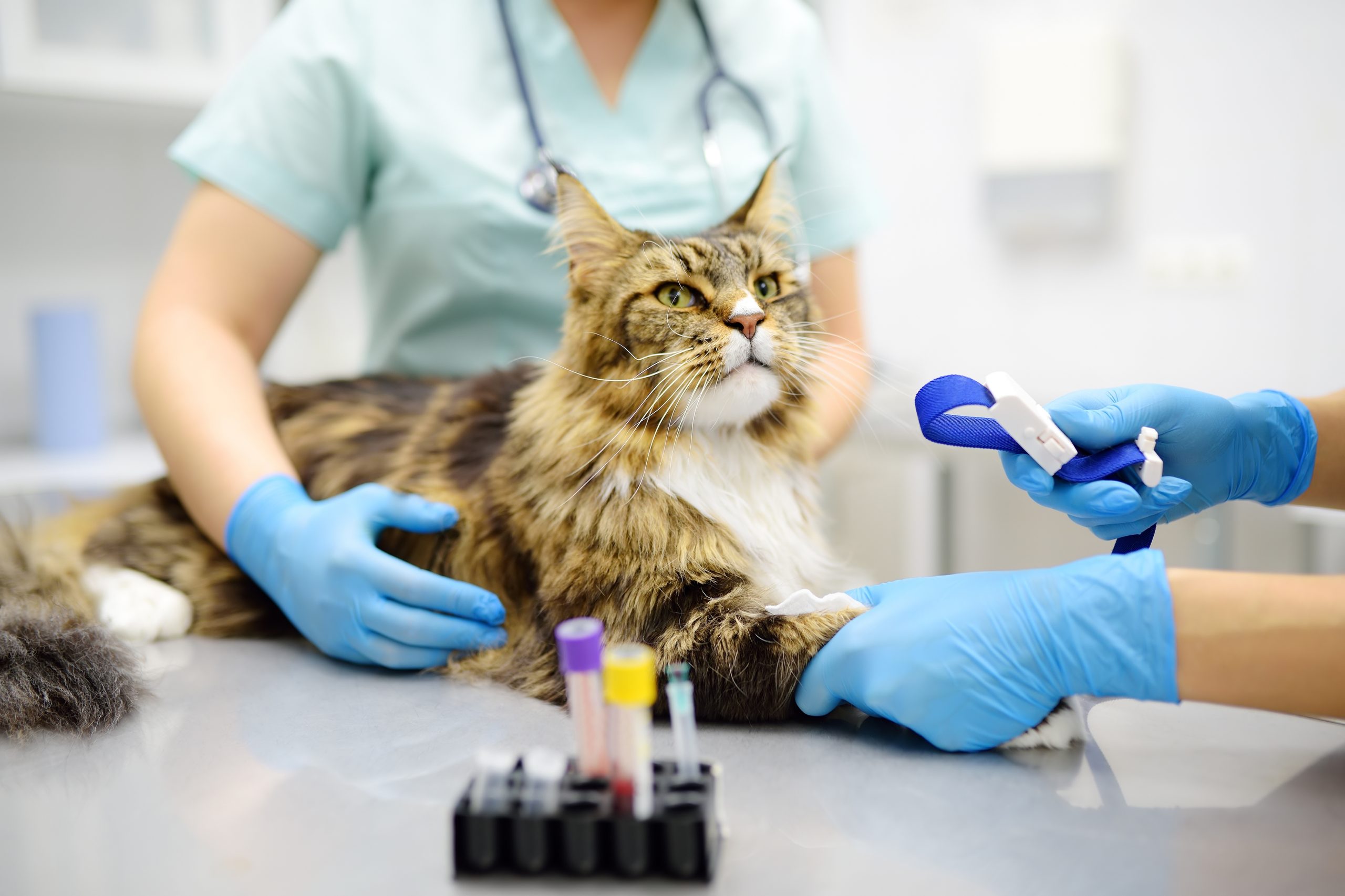When your pet undergoes a veterinary exam with our Aloha Veterinary Hospital team, our veterinarian often orders routine blood work or diagnostic tests. Lab testing is vital for understanding your furry friend’s health and establishing a baseline, which allows for early disease detection when changes occur. However, lab results can be confusing for pet owners, so we offer this guide to help you interpret the most common tests and what the results indicate.
Standard lab tests for pets
Our Aloha Veterinary Hospital team conducts common lab tests for most healthy pets to ensure proper organ function and detect abnormalities or infections. The following tests are included in most wellness exams:
Complete blood count (CBC)
A CBC measures the following components of your pet’s blood:
- Red blood cells (RBCs) — These cells carry oxygen from the lungs to the rest of the body. Low RBC counts can indicate anemia, while high counts may suggest dehydration or other conditions.
- White blood cells (WBCs) — WBCs are part of the immune system and help fight infections. Elevated WBC counts can indicate infection, inflammation, or stress, while low counts suggest bone marrow issues or severe infections.
- Platelets — Platelets are responsible for blood clotting. Low platelet counts can lead to bleeding disorders, while high counts are less common but can occur with an iron deficiency, following some infections, major surgery, or trauma, or because of cancer.
Blood chemistry panel
The blood chemistry panel evaluates organ function and includes:
- Liver enzymes — Elevated levels can indicate liver disease, damage, or bile duct issues.
- Kidney values (BUN, creatinine) — High levels can suggest kidney dysfunction or dehydration.
- Electrolytes (sodium, potassium, chloride) — Imbalances can indicate various conditions, from dehydration to kidney disease.
- Glucose — High levels can indicate diabetes, while low levels may suggest hypoglycemia.
- Proteins — Abnormal levels can indicate liver disease, kidney disease, or inflammation.
Urinalysis
Urinalysis evaluates urinary tract and kidney health. Key components include:
- Specific gravity — Low values indicate kidney disease, while high values may indicate dehydration.
- pH — Abnormal pH levels can indicate infections or metabolic disorders.
- Protein — High levels can suggest kidney disease.
- Glucose and ketones — Their presence in urine can indicate diabetes.
- Blood — Blood in the urine may suggest infections, stones, or tumors.
Fecal tests
Fecal testing helps detect common parasites, such as roundworms, hookworms, whipworms, and giardia. The testing process includes:
- Sample collection — The pet owner or our veterinary team collects a fresh stool sample from the pet, usually at home or during a veterinary visit.
- Laboratory analysis — The sample is sent to a lab to undergo a fecal flotation process. A special solution is mixed with the stool and causes parasite eggs to float to the surface.
- Microscopic examination — Our veterinarian examines the sample under a microscope to identify any parasite eggs, larvae, or cysts.
Other tests that may be recommended for your pet
- Tick screening — This involves testing for tick-transmitted diseases, such as Lyme disease, ehrlichiosis, and anaplasmosis. Screening typically includes blood tests to detect antibodies or pathogen DNA. Regular screening is recommended for pets in tick-endemic areas or those with frequent outdoor exposure to reduce the risk of tick-borne diseases.
- Heartworm testing — A heartworm test is a crucial diagnostic tool that our veterinary team uses to detect the presence of heartworm infection in dogs and sometimes in cats. This test typically checks for antigens produced by adult female heartworms in the bloodstream, which indicate an active infection. The test is usually performed on a small blood sample, often taken from your pet as part of their routine wellness exam or before starting prevention medications. Early detection is key, because untreated heartworm disease can be fatal, and treatment early in the disease stage is more effective, less painful, and less expensive. We recommend that all pets be tested regularly and protected with year-round preventives.
- Feline leukemia virus testing — Feline leukemia virus (FeLV) testing is critical for cats. FeLV is a contagious viral infection that can severely impact a cat’s immune system, making them more susceptible to various illnesses. The test, which typically involves a simple blood draw, has two types—the enzyme-linked immunosorbent assay (ELISA) and the immunofluorescence assay (IFA). If a cat tests positive with the ELISA test, the IFA test is often used to confirm the diagnosis by detecting the virus in the white blood cells. Regular testing is recommended, especially for outdoor cats or in those in multi-cat environments.
Being familiar with standard test results and what they signify means you can better monitor your pet’s health and know immediately when they need veterinary care. Contact our Aloha Veterinary Hospital team to schedule your pet’s wellness exam, or if you have questions about your pet’s lab results.







Leave A Comment